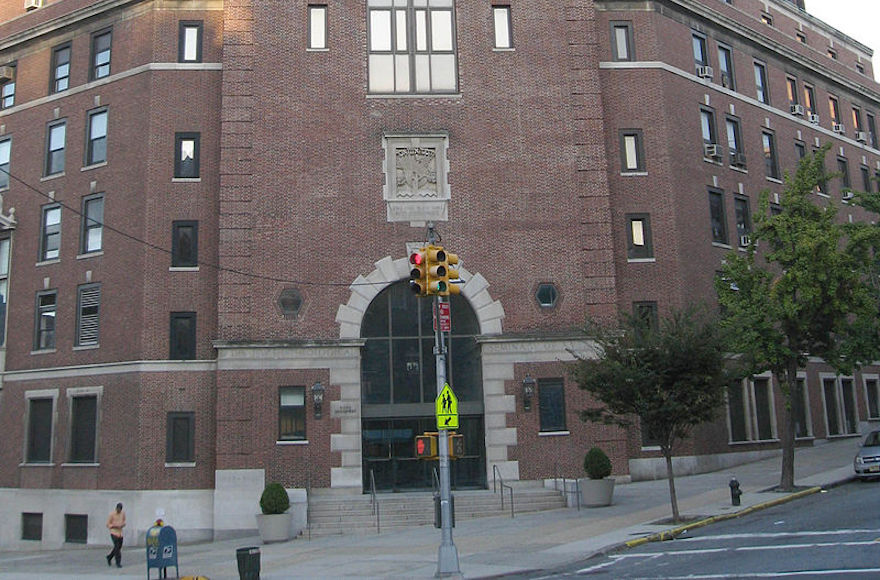Rabbi criticizes Conservative seminary for not hiring union on construction project
Published May 4, 2017

The Jewish Theological Seminary building in the Morningside Heights neighborhood of Manhattan, New York. (Wikimedia Commons)
NEW YORK (JTA) — The Conservative movement’s flagship seminary should hire a union contractor to replace the company managing its construction project, says the rabbi who wrote the movement’s legal ruling on labor laws.
Rabbi Jill Jacobs, who authored the 2008 decision by the Committee on Jewish Law and Standards, said the Jewish Theological Seminary should engage in a “good faith” effort to hire a union to work on its “21st Century Campus,” a 100,000-square foot project that will include a library, performance space, classrooms and a residence hall. The current contractor on the project, Gilbane Building Company, employs both union and non-union subcontractors.
“I believe there is still an opportunity for JTS to do the right thing in its current construction project,” Jacobs, who heads T’ruah: The Rabbinic Call for Human Rights, wrote in a Facebook post Thursday morning. “But we are not there yet.”
The ’08 ruling, Jacobs wrote, “unequivocally asserts that Jewish employers should hire union workers when possible. … One major step that JTS could take would be to commit to make a good faith effort to secure a union subcontractor for each piece of the work, and move to non-union only if there were no bids. ”

Rabbi Jill Jacobs (Courtesy of T’ruah)
Protesters, including JTS students and a New York City labor advocacy group, have protested the seminary’s decision to hire Gilbane. The protesters criticize Gilbane’s record on safety and workers’ salaries, and are urging JTS to hire a union. More than 100 alumni of the seminary’s undergraduate program have signed a letter outlining these concerns.
JTS Executive Vice Chancellor Marc Gary says Gilbane has an exemplary safety record, citing awards the company has won from industry experts. He told JTA that union workers have done the majority of the work thus far on the project, that JTS will be taking safety precautions beyond what is legally required and that all workers will be paid a living wage, defined as at least $15 to $20 an hour.
“We will create hundreds of jobs for workers in the New York City area, each one of whom will be treated with dignity and care,” Gary wrote Wednesday in an email to JTS alumni. “By focusing on safety, by insisting that workers be paid a living wage, and by treating all workers fairly and with dignity, JTS is holding itself to the high ethical aspirations” of Jacobs’ ruling.
In the email, Gary wrote that the seminary’s inhouse experts on Jewish law, Rabbis Danny Nevins and David Hoffman, affirmed that the JTS decision accorded with Jacobs’ ruling. Jacobs, however, disagrees with that assessment.
She outlined four steps that she believes JTS should take:
* Commit to soliciting union bids for each stage of the project;
* Ensure workers can submit safety complaints anonymously;
* Allow workers to organize if they choose;
* Demand that Gilbane enter into an agreement that allows unions to negotiate work terms with the contractor.
“Those of us committed to living halakhic and moral lives should aim to do what is right, not what we can get away with,” Jacobs wrote, using the Hebrew term for Jewish law. “Without unions, we end up in a race to the bottom in which the people who build our seminaries, schools, and homes may not be able to take care of their families in dignity.”













